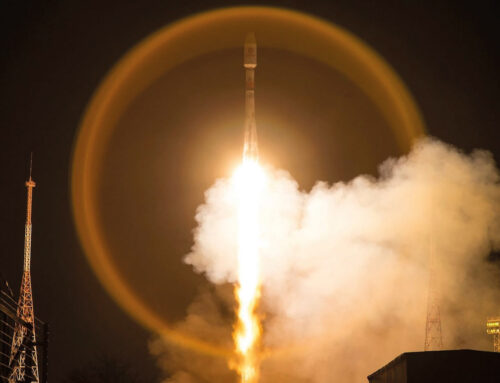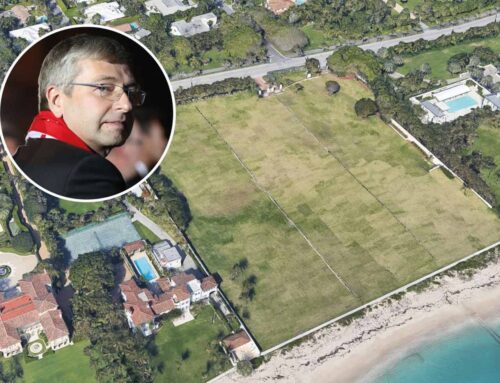When Hillary Clinton accused Donald Trump of being a serial tax dodger and not paying income tax for decades during the 2016 Presidential election campaign, he brazenly replied: “That makes me smart”. The former President openly brags about using aggressive tax avoidance schemes. “I fight like hell to pay as little as possible”, he said last year. And his then campaign manager Corey Lewandowski confirmed his boss’ approach to tax: “Every deduction possible – he fights for every single dollar”.
This approach raises the tantalizing prospect of whether the former President of the United States has stashed million of dollars in offshore tax havens. Trump denies using offshore companies: “I don’t use them. Honestly, I think they’re more trouble than they’re worth – highly over-rated”
But that is not strictly true. In 1994 he set up an offshore company called DJ Aerospace Ltd in the tax haven of Bermuda, and he also transferred over 110 registered or pending trademarks to a holding firm in Delaware which experts regard as a tax haven inside the USA because it is so secretive and can help you avoid tax in other states.
Trump is not the only former President to enjoy the benefits of being offshore. Bill Clinton spent five years as an adviser to US billionaire Ron Burkle’s investment fund, Yucaipa Global, which had funds registered in the Cayman Islands and Dubai. That alliance netted Clinton at least $15 Million.
But the offshore world could play a major role during the Trump Presidency. Today US corporations are making record profits in tax havens like Bermuda, Cayman Islands, and British Virgin Islands. Some of the profits exceed the GDP of the host country. General Electric, which has subsidiaries in the Bahamas, Bermuda and Singapore, holds $119 billion offshore. Pfizer with $74 billion in profits offshore maintains a subsidiary in the Cayman Islands and Merck with $60 billion offshore has 10 subsidiaries alone in Bermuda.
The Bahamas is Trump’s favourite offshore location. In July 1987 he flew into Nassau in his private Boeing 727 and snapped up Resorts International, the first major casino hotel on the island. The struggling development nestled on a white sand fringed island, a stone-throw away from the bustling capital on Paradise Island, once a notorious pirate base under English rule and later owned by flamboyant Swedish industrialist and Nazi spy, Axel Wenner-Gren.
Trump took immediate ownership of Resorts International, appointed himself Chairman and demanded huge fees equivalent to all of the company’s income in the foreseeable future. This was despite taking on a whopping $700 million in debt from the Resort’s troubled American TajMahal casino project. His predilection for high debt property gambles had manifested itself early on.
And when Trump sold Resorts International to the television host Merv Griffin, he netted a cool $68 million from the deal. The next year the Bahamas resort went into Chapter 11 bankruptcy after Griffin stopped paying interest on the staggering $925 million of debt.
The international jet-set are fond of this intriguing Caribbean paradise. On the western tip of adjacent New Providence island, lies an extremely secretive golf resort for the world’s political and economic elite: Lyford Cay. This 3000-acre plot, a former mosquito infested swamp has become the playground of the world’s ‘rich and infamous’ – a convenient hideaway and neutral offshore meeting place. The closed community has been rife with scandals and Machiavellian conspiracies. Lyford’s members have included Prince Rainier of Monaco, an Honorary Chairman for many years, Agha Khan IV and Huntington Hartford III.
But the real attraction of the Bahamas is that it is a convenient jurisdiction for super-rich Americans with tax advantages and a supple corporate law which allows for anonymity and flexibility. Lucrative ties to the island archipelago are ubiquitous and growing fast: 6.000 private flights from the United States to the Bahamas were registered in 2013 alone (compared to 600 to the Cayman Islands).
It is no wonder that private jet registration has been a flourishing business for the Bahamas with hundreds of private aircraft flying a tax advantageous Bahamian tail number, many owned by Americans who also own multi-million dollar second homes.
The intriguing question for the Trump Presidency is: ‘Will European and American foreign policy continue to erode the traditional selling points of our offshore jurisdictions? And will banking and corporate secrecy, zero taxes and comfortable anonymity be sacrificed in order to appease the global leftist push towards eradicating the traditional offshore privileges of the world’s rich and famous?’
Not necessarily and not quite that fast.
Trump’s comments on foreign offshore tax havens are hiding an agenda which the US has already began to successfully implement: turning America into the largest offshore centre in the world.
States like Delaware, Nevada and Wyoming are currently promoting anonymity and secrecy coupled with very low taxes on a global scale. The message is clear: “Bring your money from offshore to the US, because we offer greater protection and similar advantages”. The ‘Trump card’ being offered is the non-disclosure of a US company’s beneficial owner, something which has been impossible in the Bahamas and other traditional tax havens for years. Under the pretext of combating money laundering and terrorism, a new law known as the Foreign Account Tax Compliance Act has been devised by the United States. But it is very revealing that the US is the only country who has not signed the agreement and is not bound by its strict rules.
Trump promised a dramatic reduction of corporate taxes for US corporations who have promised to repatriate funds to the USA. Whether those funds can actually be forced to be invested in manufacturing jobs, as Trump has heralded, remains to be seen. So far most of the funds repatriated have served internal company share buybacks, which do not create jobs.
By conveniently reducing the taxes which will benefit the bottom-line of his onshore ventures, the billions stashed away offshore by many of his friends and large corporations are unlikely to be repatriated in the near future.
The interests of US Fortune 500 companies and many of their directors and shareholders are closely tied to offshore centres like the Bahamas and these historically deep-rooted interests and enormous financial stakes will make an unravelling of these tax havens highly unlikely – especially under the Presidency of Donald Trump.
ENDS



